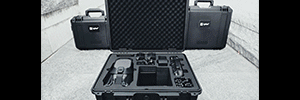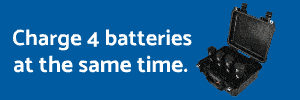Read it again. Until June of last year, it was explicitly to tie the hands of government to prevent illegal searches. But, since then, the statute has been amended to protect citizens from ANY drone operators (there are exceptions for surveying, utility work, etc).
Specifically, 3(b) (emphasis added by me):
(3) PROHIBITED USE OF DRONES.—
(a) A law enforcement agency may not use a drone to gather evidence or other information.
(b)
A person, a state agency, or a political subdivision as defined in s.
11.45 may not use a drone equipped with an imaging device to record an image of privately owned real property or of the owner, tenant, occupant, invitee, or licensee of such property with the intent to conduct surveillance on the individual or property captured in the image in violation of such person’s reasonable expectation of privacy without his or her written consent. For purposes of this section, a person is presumed to have a reasonable expectation of privacy on his or her privately owned real property if he or she is not observable by persons located at ground level in a place where they have a legal right to be, regardless of whether he or she is observable from the air with the use of a drone.
Further, the term "surveillance" is defined quite differently than one would think:
(e) “Surveillance” means:
1. With respect to an owner, tenant, occupant, invitee, or licensee of privately owned real property, the observation of such persons with sufficient visual clarity to be able to obtain information about their identity, habits, conduct, movements, or whereabouts; or
2. With respect to privately owned real property, the observation of such property’s physical improvements with sufficient visual clarity to be able to determine unique identifying features or its occupancy by one or more persons.
In other words, if there is sufficient clarity in your pictures/video to identify a structure, you're surveilled it. It doesn't mean you hang out and watch it specifically for movement or occupancy. If you can identify it it, you've violated this section of the statute. Simply flying close enough to incidentally capture the property at an angle that is above ground level, you're potentially liable.
While (3)(b) requires "Intent to conduct surveillance on the individual or property captured", intent is very subjective. It's difficult to prove criminally, but not civilly - which is what this statute is authorizing. It would be fairly easy for a neighbor to claim your regular flights past their property constitutes intent. How do you (dis)prove that? A jury filled with fellow anti-drone peers is a chance I wouldn't want to take.











